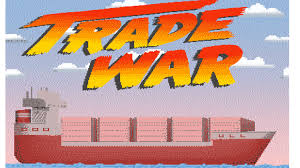A trade truce between America and China is over as soon as it began

AFTER A WORKING dinner between Presidents Donald Trump and Xi Jinping on December 1st, it seemed as if a truce had been called in their two countries’ rumbling trade war. “This was an amazing and productive meeting,” said Mr Trump. But the truce is already at risk of unravelling.
On December 5th Canada’s justice department said that, on the same day that the two presidents dined, it had arrested Meng Wanzhou, the chief financial officer of Huawei, a Chinese maker of telecoms equipment, at America’s behest. For China, that looks like a political salvo. Huawei is a pillar of the Chinese economy—and Ms Meng is the founder’s daughter. The fate of the trade talks could hinge on her encounter with the law.
She was due to appear in a Canadian court on December 7th, after The Economist went to press. Her arrest is thought to be related to an American probe into Huawei’s alleged violation of sanctions on selling technology to Iran. The company said it was “not aware of any wrongdoing”. A similar investigation led ZTE, a smaller Chinese peer, to be hit with a near-fatal ban that, until it was hastily reversed, prevented American firms from selling parts to it. The implications of a comparable ban on Huawei would be greater by orders of magnitude. America has also been pressing allies to end business ventures with Huawei over national-security concerns.
The trade truce had looked shaky enough anyway, based as it was on mercantilism and a promise to talk more. Mr Xi pledged that China would buy more American goods and address deeper American concerns; Mr Trump promised to delay to March 1st a rise in tariffs, from 10% to 25% on $ 200bn of goods, that had been set for January 1st. Even before news of Ms Meng’s arrest, global stocks see-sawed as investors wondered if hostilities might resume.
The two countries’ trade teams have been given until March 1st to agree on “structural changes” in China with respect to “forced technology transfer, intellectual property protection, non-tariff barriers, cyber intrusions and cyber theft, services and agriculture”. American authorities have long accused China’s government of forcing foreign companies to give their proprietary technology to Chinese partners. But such demands are not enshrined in Chinese legislation; they are not even written down. Even if requirements on American companies to enter into joint ventures with Chinese ones were removed, the problem could continue in practice.
Larry Kudlow, Mr Trump’s economic adviser, says talks on these thorny issues are well advanced. And on December 4th China did unveil tougher penalties for intellectual-property thieves, including restrictions on their access to finance. But a cynic would point out that China has made such promises before, and broken them. And the real sticking point is not the size of penalties, but how actively they will be imposed.
Moreover, there is a big gap between what the two countries say they are working towards. America’s hawks want deep changes, including limits on China’s industrial subsidies. China says that it wants to continue reforming its economy in line with existing plans. This would surely be too little for America—even when garnished with some additional purchases of American soyabeans. If the two tracks remain wide apart, the talks may collapse.
Mr Trump and his officials are giving the Chinese a chance to show that they are taking the negotiations seriously. Reports are emerging that the Chinese are preparing to buy more American soyabeans and natural gas. But that says little about China’s willingness to embrace deeper change.
For their part, with the arrest of Ms Meng, Chinese officials are questioning whether the Americans are negotiating in good faith. To go after a Chinese commercial champion just as Mr Xi draws closer to Mr Trump plays badly in China. If the timing is a coincidence, and Mr Trump was unaware of it, it is one more sign of a chaotic White House, which is not reassuring. But many in China see it as a brazen show of American power. To revive the already-fragile truce, Americans will now have to soothe jangled Chinese nerves at the same time as trying to extract concessions.
This article appeared in the Finance and economics section of the print edition under the headline “Peace in our time”

